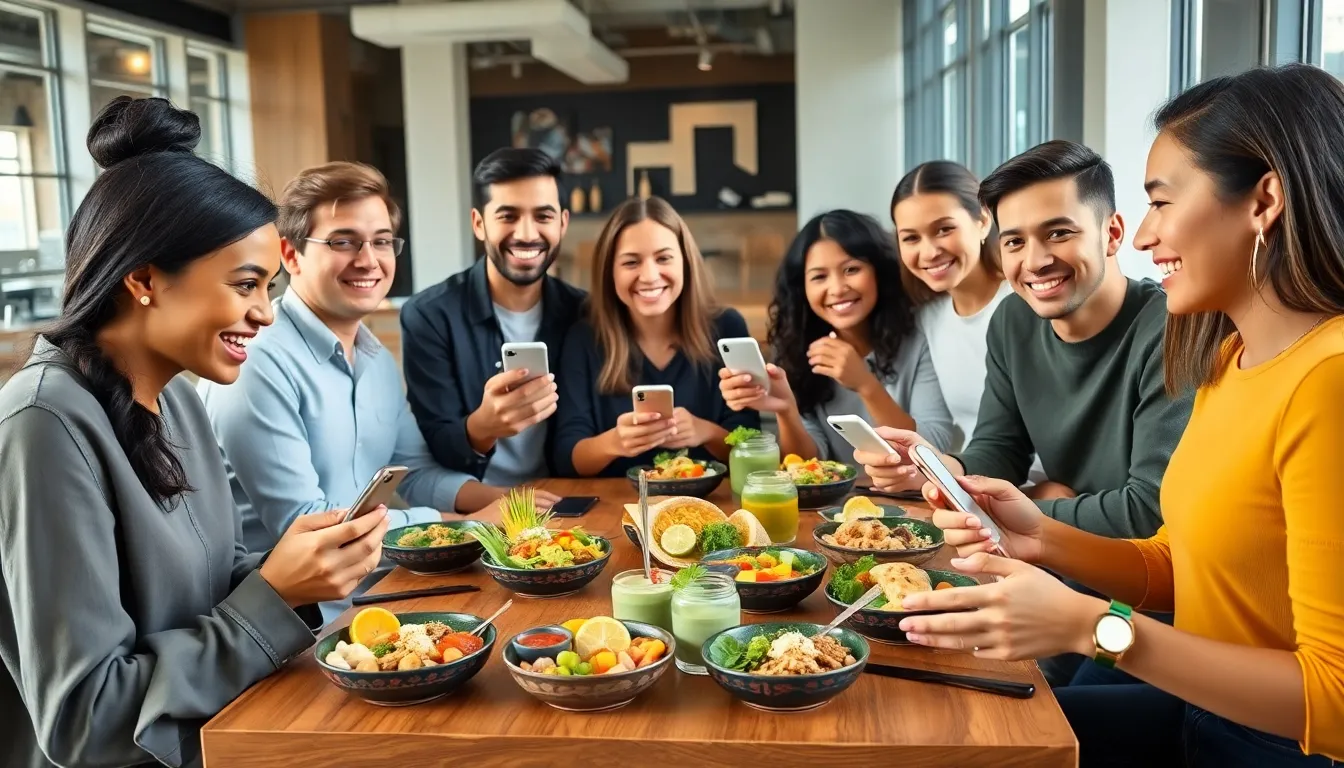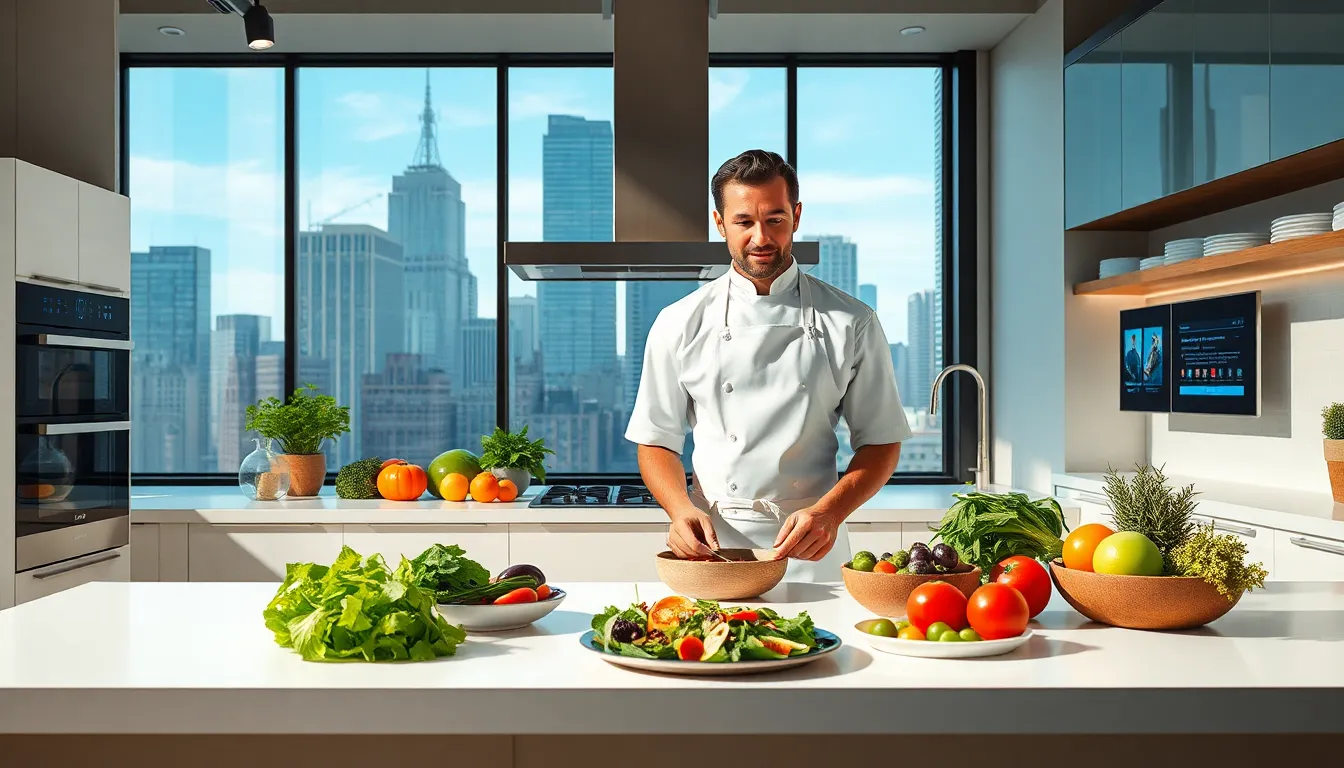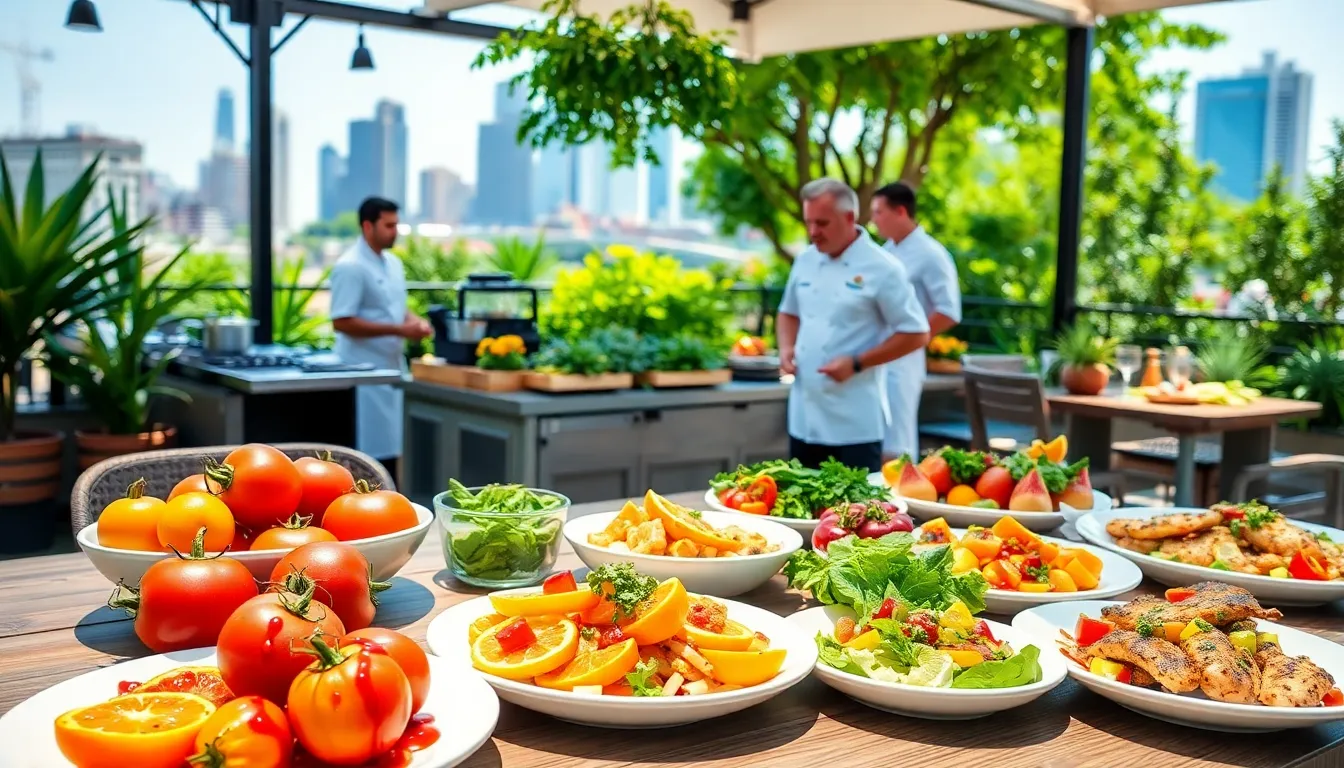Table of Contents
ToggleWhen it comes to dining, Gen Z isn’t just eating: they’re revolutionizing how we think about food. From plant-powered dishes to ethically sourced meals, this generation is redefining culinary norms. Think of them as food connoisseurs with a social conscience. In a world where avocado toast has become a cultural icon, it’s clear that Gen Z holds the mini-spoon to the future of dining. So, what are the flavors that tantalize their taste buds? Let’s dig in and discover the food trends Gen Z is serving up today.
Understanding Gen Z’s Unique Culinary Preferences

As the first generation to grow up in the digital age, Gen Z is unique in its food preferences. They prioritize authenticity and diversity, opting for meals that tell a story or reflect their cultural backgrounds. Unlike their predecessors, they are less likely to settle for bland meals. Instead, they seek vibrant flavors that spark joy, often choosing dishes that visually pop on their social media feeds. A study by the Pew Research Center highlighted that they are more likely to value experiences over possessions, and this philosophy extends to their dining choices. Eating has become an avenue for self-expression, where every dish serves as an extension of their individuality.
Also, Gen Z is keen on understanding the ingredients in their food. They actively seek out transparency from brands, searching for ethical sourcing and health-conscious options. In many ways, food has become a form of activism, with many Gen Zers using their choices to advocate for sustainability and social justice. Food isn’t just fuel for them: it’s a statement.
The Rise of Plant-Based Eating
Plant-based eating isn’t just a trend among Gen Z: it’s a full-blown culinary revolution. The demand for meat alternatives has skyrocketed, with brands like Beyond Meat and Impossible Foods leading the charge. No longer relegated to vegetarian restaurants, plant-based options now infiltrate mainstream menus. Think about it: do people really want to settle for just a salad when they can feast on delicious quinoa bowls bursting with flavor?
Health benefits are drawing many Gen Zers towards a plant-based diet, helping lower risks of chronic diseases. Besides, a report from the Good Food Institute indicates that a staggering 45% of Gen Z is actively reducing meat consumption. They not only care about their own health but also the health of the planet. It’s not just about personal choices: it’s about collective responsibility.
Sustainable and Ethical Food Choices
When it comes to sustainability, Gen Z doesn’t just talk the talk: they walk the walk, or rather, they eat the eat. This generation is acutely aware of the environmental impacts of their eating habits. They are increasingly supporting brands that practice ethical sourcing, whether it’s locally sourced produce or fair trade coffee. They look for certifications that outline a company’s commitment to sustainability.
Farm-to-table concepts have emerged as more than just buzzwords: they’re a lifestyle choice. Many restaurants showcasing local ingredients are winning over Gen Z’s hearts (and stomachs). For them, supporting local farms isn’t just a culinary trend: it’s a chance to build community and champion environmental sustainability.
Influence of Social Media on Food Trends
Social media has ignited a food renaissance, with platforms like Instagram and TikTok playing pivotal roles in shaping Gen Z’s culinary landscape. The visual nature of these apps encourages users to share beautifully plated dishes, making instant food celebrities out of anyone who can snap a stunning picture of their meal. Think about the virality of trends like the “cloud bread” or “whipped coffee”, created, adored, and devoured on platforms where visual appeal reigns supreme.
Influencers wield significant power, guiding their followers toward food fads and trendy eateries. They’re not just sharing recipes: they’re shaping entire food movements. Brands are wise to partner with these influencers, seeking their endorsements to establish credibility and reach. This interconnected world has led to rapid spread of trends, making it imperative for restaurants to stay on their toes.
Global Flavors and Fusion Dishes
The globalization of food has led to a glorious mashup of flavors, inspiring Gen Z’s culinary adventures. Gone are the days when diners stuck with traditional dishes from their own cultures. Instead, they’re experimenting with bold flavors from around the world. Fusion cuisine reigns supreme, with everything from Korean BBQ tacos to sushi burritos tantalizing taste buds.
This adventurous palate reflects Gen Z’s willingness to embrace diversity in all aspects of life. Restaurants that embrace this trend often find themselves thriving. As diners seek new, globally inspired menu items, chefs are stepping out of their comfort zones to blend cultures, creating dishes that celebrate culinary creativity.
Health Consciousness and Wellness Foods
Health consciousness is not just a trend: it’s a lifestyle for many in Gen Z. They value nutrition and seek foods that nourish both the body and mind. Think adaptogenic lattes, superfood smoothies, and gut-friendly probiotics. These aren’t just buzzwords: they signify a fundamental shift toward wellness-oriented eating.
With mental health issues on the rise, many Gen Zers are turning to food as a form of self-care. They actively seek ingredients known for their health benefits while avoiding processed foods that contribute to feelings of sluggishness. Restaurants offering wellness-focused menus are increasingly appealing, and that’s changing how chefs construct their dishes.
The Future of Food Trends Among Gen Z
As we look to the future, it’s clear that Gen Z will continue to influence food trends in transformative ways. Their commitment to sustainability, health, and ethical choices is unlikely to wane. From the expansion of plant-based offerings to the growing popularity of food tech, think edible packaging and lab-grown meats, this generation is not just following trends: they’re revolutionizing them.
With a strong focus on community and experience, food will continue to be a key part of how they build connections. Expect more pop-up dining experiences, interactive cooking classes, and food festivals that celebrate global cuisines. It’s an exciting time for food lovers, with Gen Z at the forefront of culinary innovation.




